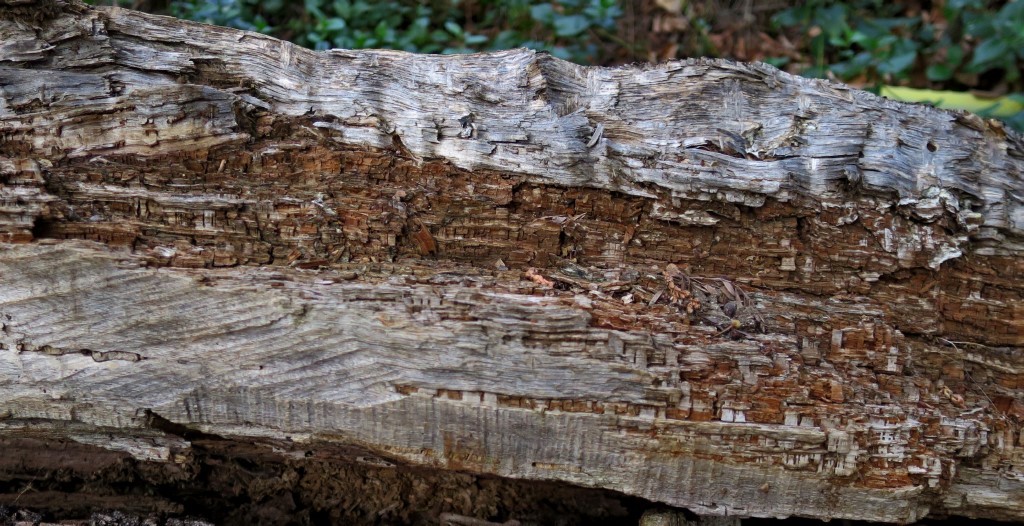What is Simplicity?
The ancient masters were subtle,
mysterious, profound, responsive.
The depth of their knowledge is unfathomable.
Because it is unfathomable,
All we can do is describe their appearance.
Watchful, like men crossing a winter stream.
Alert, like men aware of danger.
Courteous, like visiting guests.
Yielding like ice about to melt.
Simple, like uncarved blocks of wood.
– Lao Tzu, 15
The Character of Simplicity
Yes, simple, like uncarved blocks of word. Like “pǔ”. The character “pǔ”, or “simple”, shown below, is sometimes translated as the “uncarved block”. It occurs eight times in the transmitted text of the Tao Te Ching. It is used as a metaphor for man’s unspoiled, original nature.

Among its definitions are:
- unworked wood
- cut down, felled trees
- nature; essence; intrinsic quality (compare English in the rough)
- simple; plain; unadorned; unaffected

In the primitive version of the character, we can see that it has a tree ‘radical’ on the left, with three branches going up and three roots going down. The right-hand side signifies ‘to gather twigs with one’s hands’ – note the two hands with three fingers at the bottom.
Return to the state of the uncarved block.
When the block is carved, it becomes useful.– Lao Tzu
The Useful and the Useless
The experiences of our life and the programming provided by our culture carve the block, that was once in infancy uncarved. The usefulness of our behavior, our learning, is the key. What is useless is discarded.
A grown man, like myself, is perhaps useful for many things. After all, I can drive a car, handle a screwdriver, write articles like this, get along with other people reasonably well, and so on. I suppose, in the Fourth Way, we would be speaking of how to use the four lower centers.

Chuang Tzu, echoing Lao Tzu’s sentiments a few centuries later, gives us the following story:
Tzukung wandered south to Ch’u and was returning through Chin. As he was passing along the south bank of the Han River, he saw an elderly man who was working in his vegetable garden. He had dug a channel to bring water from the well and was carrying jars to pour on the garden. He exerted a tremendous amount of energy, but with little result.
Tzukung said to him, “There are machines for this purpose that can irrigate a hundred plots in one day. They use very little energy, but their results are great. Don’t you want one, sir?”
The gardener looked up at him and asked, “How does it work?”
“It is a device fashioned from wood that is heavy in back and light in front. It picks up the water like a ladle, as fast as though it were boiling over. It’s called a wellsweep.”
“The gardener made an angry grimace and said with a laugh, ” I have heard from my teacher that where there are ingenious contraptions, there are sure to be ingenious affairs, and where there are ingenious affairs, there are sure to be ingenious minds. When one harbors an ingenious mind in one’s breast, its pure simplicity will be impaired. When pure simplicity is impaired, the spiritual nature will be unstable. He whose spiritual nature is unsettled will not be supported by the Way. It’s not that I am unaware of such things, rather that I would be ashamed to do them.”
Here we can see the lesson. If there is no simplicity, our spiritual nature will be hindered, and we cannot be ‘supported by the Way,’ that is, we cannot be present to the moment.
But what is this simplicity?
Essence Simplicity
Perhaps the term “simplicity” means a state of essence, specifically the essence of an infant, totally receptive and absorptive.

I’d give all the wealth that years have piled,
the slow result of life’s decay,
To be once more a little child for one bright summer day.
– Lewis Carroll
Simplicity must be an intentional and conscious unwinding of the layers of essence, a going back to infancy, when we were a pure, open-eyed piece of a higher world, finding ourselves suddenly in a lower world. Perhaps it is whatever essence was before conforming to the mold of our body type, center of gravity and alchemy, before merging with the world of the body, before we were stamped by the impress of our culture.
When simplicity arises in your mind,
Do not follow cleverness.
Rest in the state of simplicity.
– Milarepa
We become simple through self-remembering, for moments at a time. In these moments, our complex personality temporarily drops away. Then we must defend it, by deflecting cleverness and avoiding complex thinking.
The great masters are simple, they are ‘pǔ’, just that.

The greatest carver does the least cutting.
– Lao Tzu
David Tuttle operates a computer repair business and is an artisan bread baker with over 40 years in the work. He is the host of the Fourth-Way-based Facebook group Gurdjieff-Ouspensky Self-observation.

